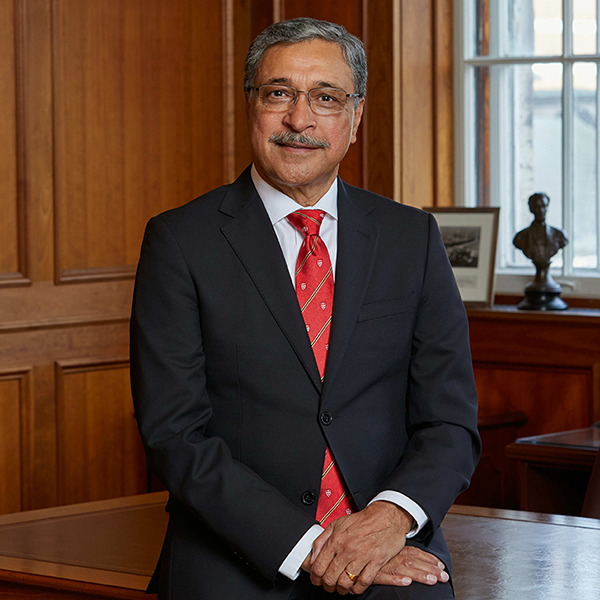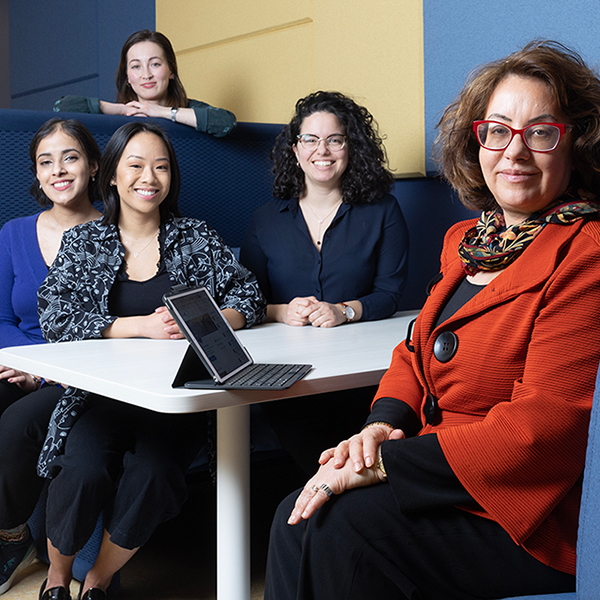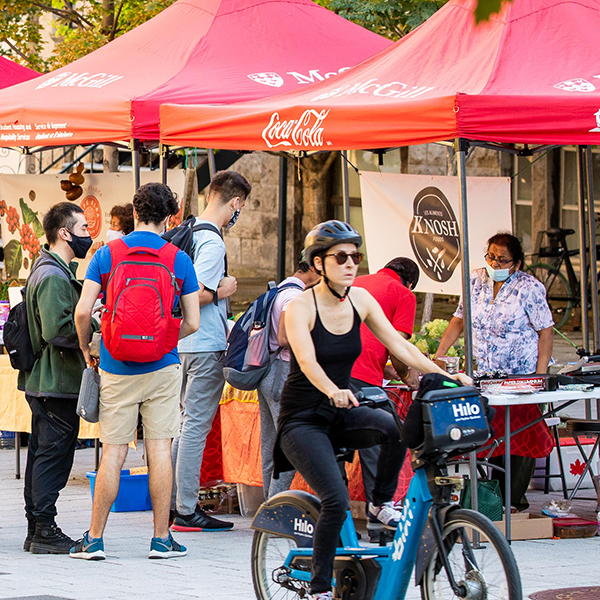A few years ago, professors in the Faculty of Education began noticing something about some of their recent graduates. Some of them weren’t becoming teachers in elementary schools or high schools, the jobs that their bachelor’s degrees in education had prepared them to do.
“There were some BEd students who really cared about teaching and learning but found that teaching seven-year-olds or 14-year-olds wasn’t really for them,” says Joseph Levitan, an assistant professor in the Department of Integrated Studies in Education (DISE) and the director of its graduate program. And while those graduates opted for work that didn’t involve classroom teaching, they had no regrets about the time they had spent at McGill studying education.
“What they found was that their BEd degrees had given them a lot of transferable skills that allowed them to become successful in other careers,” says Levitan. “They were working in community development or in business and they gave credit to McGill for the skills they picked up during their BEd.”
“The value of education can be found, not just in schools, but in multiple sectors,” says Lisa Starr, a DISE associate professor and the chair of the department. “It can be found in NGOs or in governments or in community organizations. People end up [working] in educational roles in these different sectors and they just sort of end up there without any kind of training or education for those roles.”
Starr says she and her DISE colleagues decided to fill that gap. “How could we create a [program] that better served educational communities who don’t require internships in schools and classrooms, or training in the technical parts of teaching like lesson planning and assessment, because education doesn’t occur in the same way in these other sectors.”
The product of that thinking was launched last semester. The Bachelor of Arts (Education); Major in Education in Global Contexts is a new 90-credit undergraduate degree, and its initial cohort of students are currently in their first year of studies. Starr believes the program is unique in Canada.
Levitan is the new degree’s program director.
“These courses are really about thinking through the sociological and scientific aspects of learning and solving problems,” he says. “It’s not about how to manage a classroom effectively or how to teach English language arts or physics.”
At its heart, good teaching is about how to forge connections, how to encourage learning and how to communicate effectively. There are plenty of jobs where those skills are essential, says Levitan – a HR professional working on staff development programs, for instance, or an international aid worker who needs to know how to build trust with local communities.
“Any teaching and learning, regardless of the sector it occurs in, has to happen between people,” says Starr. Education professors know quite a bit about “how to build consensus, how to make effective decisions and how to communicate with others. That really is the foundation for much of our course work [in the new program]. We’re [sharing] what we know very well about building relationships and forging communities.”
Levitan hopes the program will appeal to certain individuals in particular.
“We want to pull in people who want to make a positive change in the world,” he says. Community organizers and climate change and human rights activists – all could benefit from the training offered by the program. It isn’t an easy thing to get someone to consider a different point of view or to modify their behaviour, no matter how noble the cause, says Levitan.
“The assumption, sometimes, is that if we can just tell people the facts, they’ll realize that the facts are compelling, and things will change. That’s a common assumption, but it is often a faulty assumption. People usually don’t change their behaviours that easily. It is more complicated than that. There is a lot of great educational research about how to foster change in behaviours and attitudes” and Levitan sees the program as a vehicle for sharing those insights.
Expectations for student enrolment in the Education in Global Contexts major were modest when it was first announced. “We did almost no advertising and it was right in the middle of the pandemic,” says Levitan. “We received more than 240 applications [from prospective students] in spite of that. We accepted 35 students and they come from all over the world and from different walks of life.” Students currently in the program are from Montreal, from other parts of Canada, from China and Southeast Asia, from Europe and from the U.S.
“Our student applications [for the program] are up 164 per cent over last year and they were already way beyond our expectations last year,” adds Starr. “We have already decided to increase our enrollments to meet the overwhelming student interest.”
Helena Silen is one of the program’s first students.
“It is clear that our teachers are excited to be teaching this program,” she says.
Silen is interested in education reform, but likes the fact that the program will allow her to explore other potential career options. Her classmates have interests in diverse areas. “Many are interested in policy, law and government. We also have folks interested in community programs, especially around education in social work and physical or mental health. We also have a good number of international students who seem to be interested in applying ideas to education reform related to their cultural background.”
In their third year in the program, students will take part in an internship.
“We have a long list of partners who are willing to take on McGill interns,” says Levitan. “Just off the top of my head, there are some non-profits in Peru, non-profits in Africa, the Ministry of Education for those who can speak French, some policy organizations. [Students] can pick from a long list of about 50 partners from around Montreal and internationally.”
Students aren’t restricted to that list – if there’s a specific organization that they would like to work with, the program would help them set that up.
“The great thing about the internship is that students get to choose whatever they want so long as they can find a supervisor [in an organization] and they can come up with a plan for their internship,” says Levitan.
“The students are really looking forward to that opportunity to go out into the field and to contextualize everything that they’re learning,” says Starr.


